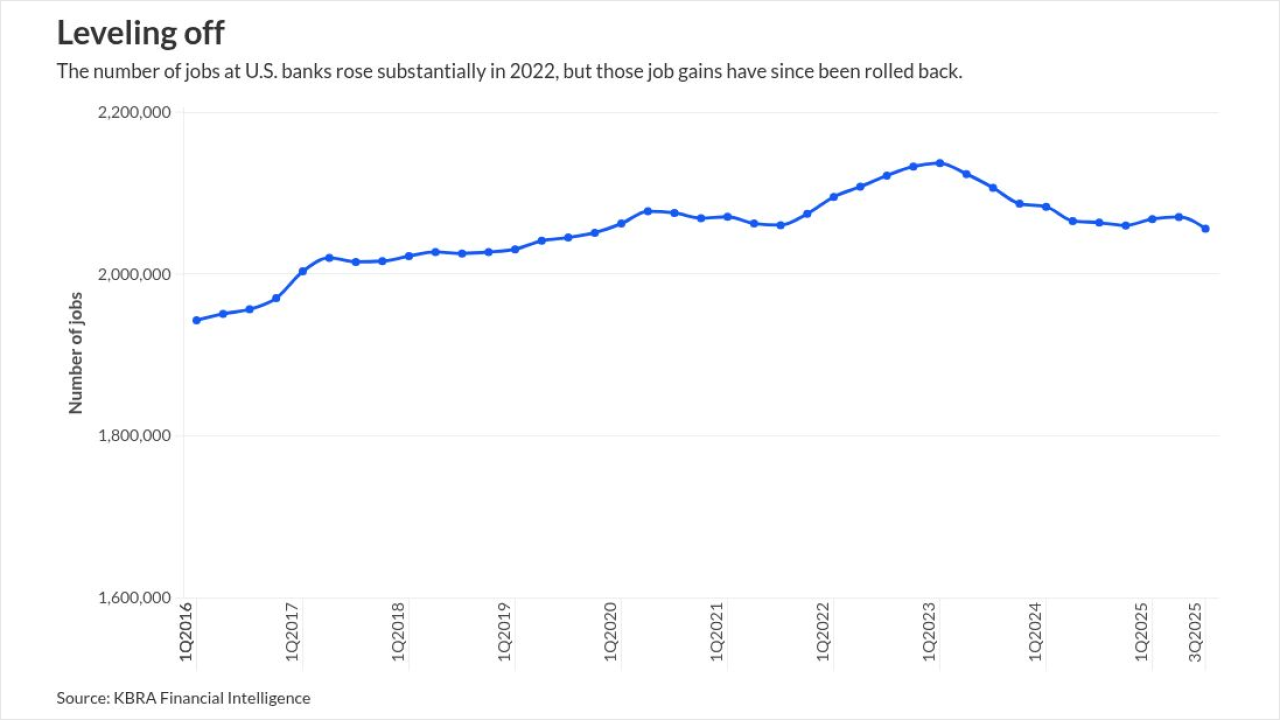Banks typically pitch personal financial management tools as a way to analyze past spending. A new approach flips that around to help consumers control future spending.
Visa Inc. on Thursday is expected to announce PNC Financial Services Group Inc. as the first bank to offer its credit and debit cardholders a set of tools that notify them when they approach pre-set spending thresholds. PNC tested the service in the fourth quarter with customers using its Virtual Wallet account, which is built around PFM features.
The service was then made available across the Pittsburgh bank's entire online customer base in January, said Mike Ley, PNC's vice president of payments and e-business.
"This particular [feature] fits within all the things we've been doing within Virtual Wallet for a couple of years now," Ley said in an interview Wednesday.
Visa, whose service does not have a name, said individual issuers can assign it their own branding. The service, which Visa is pitching to other card issuers as well, is based on existing alert capabilities that the San Francisco card payments network has been marketing for more than a year.
The earlier service focuses more on flagging individual transactions, a Visa spokeswoman said Wednesday. The new one allows cardholders to get notifications about aggregate spending amounts over specific time periods, the spokeswoman said. Customers can receive alerts by text message and e-mail.
Visa's new tool, which is also available for commercial and small-business accounts, resembles one MasterCard Inc. introduced in 2007 called inControl. MasterCard has made a more pronounced push in the past year.
MasterCard's service is based on technology developed by Orbiscom Ltd., an Irish company it acquired in 2008.
A handful of banks, including Citigroup Inc. and JPMorgan Chase & Co., are offering MasterCard's service to their commercial cardholders, said Michael Fiore, the senior vice president and group head of emerging payments for the Purchase, N.Y., card brand.
Citi and some others also offer it to their consumer cardholders.
MasterCard's inControl service includes a feature that allows a cardholder to block a transaction if a pre-set spending limit has been set or if a family member tries to make a purchase at certain categories of merchants, Fiore said.
Visa currently does not offer that capability, its spokeswoman said, adding that consumer research it conducted has shown cardholders want the ability to track transactions but not have spending shut off.
In either Visa or MasterCard's case, issuers can decide which features to make available to their cardholders.
Fiore said most banks working with MasterCard have chosen to make the alert functions available first with plans to add the blocking capability later.
While giving cardholders the ability to block transactions and receive alerts based on budget thresholds might appear detrimental to card issuers, which generate revenue from card usage, Fiore said the added features actually help foster customer loyalty.
"This level of added utility on the actual card … makes the cardholder spend more on the card because they're not using the other methods like cash and check," Fiore said.
PNC's Ley echoed Fiore.
"Our thought is if you know that you're going to get these alerts and you know … that we're helping out in the background, you have more of a propensity to use those cards and do more with us," Ley said.
PNC's Virtual Wallet is a trio of accounts that are opened at once: Spend, a checking account; Reserve, which stores funds for overdraft protection; and Growth, a savings account. Customers use a calendar, presented online or on a mobile device, to track spending across all these accounts at once. The service also allows users to view spending from a PNC credit card, opened separately, on Virtual Wallet's calendar view.
PNC has been offering alerting capabilities to its Virtual Wallet customers since it made the account package available in 2008, Ley said.
The difference is that previously customers could only set alerts and budget notifications for the combined accounts tied to Virtual Wallet.
With the Visa service, PNC customers can set separate alerts for each card, which Ley said is important for consumers who want to know how individual accounts, such as a credit, play into their overall budgeting.
"I can set up separate real-time alerts for my debit card and different ones for my credit card," Ley said.
"Especially with the Virtual Wallet customer base, the primary way they are spending on a day to day basis is with their card, whether that's credit or debit," Ley added. "Providing this additional awareness of what's going on with the card just … fits with our model of being transparent, keeping customers informed and giving them as much real-time data and feedback as we can."
The service also lets cardholders set up alerts for transaction types, such as international transactions, card-not-present transactions and daily, weekly or monthly notifications when aggregate spending on a card is over a certain amount, Ley said.
Brian Riley, a senior research director for bank cards at TowerGroup in Needham, Mass., said he thinks banks could build tighter relationships with cardholders by offering a service like Visa's or MasterCard's.
However, the payment networks and banks must do more customer outreach to generate interest, Riley said.
"Some of these things have to get socialized and people need to know that you can do it and then you start developing a need and dependence on it," he said. "I'm not convinced that people are clamoring for it now, but once you can see how powerful it can be" it could attract an audience, he said.





